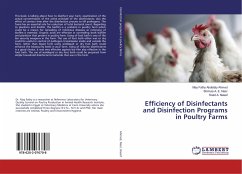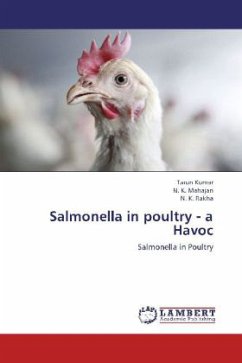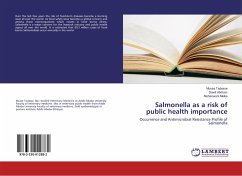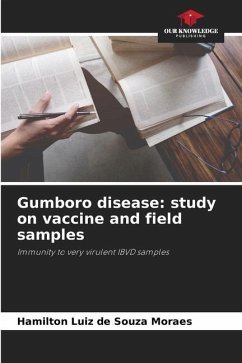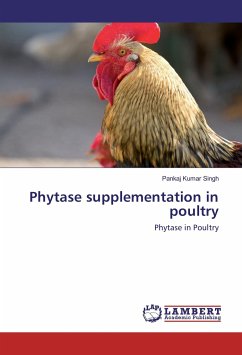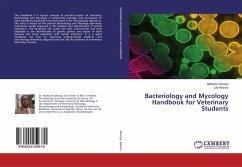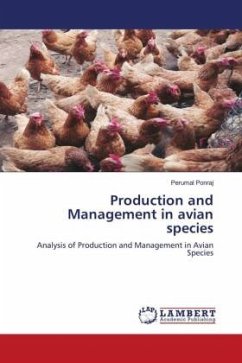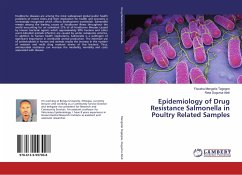
Epidemiology of Drug Resistance Salmonella in Poultry Related Samples
Versandkostenfrei!
Versandfertig in 6-10 Tagen
36,99 €
inkl. MwSt.

PAYBACK Punkte
18 °P sammeln!
Foodborne diseases are among the most widespread global public health problems of recent times and their implication for health and economy is increasingly recognized which affects development worldwide. Salmonella remain among the leading causes of foodborne illness throughout the world accounting for an estimated 27% of all foodborne illnesses caused by known bacterial agents which approximately 99% humans and other warm blooded animals infection are caused by under subspecies enterica. In addition to human health implications, Salmonella is a pathogen of significant importance in worldwide ...
Foodborne diseases are among the most widespread global public health problems of recent times and their implication for health and economy is increasingly recognized which affects development worldwide. Salmonella remain among the leading causes of foodborne illness throughout the world accounting for an estimated 27% of all foodborne illnesses caused by known bacterial agents which approximately 99% humans and other warm blooded animals infection are caused by under subspecies enterica. In addition to human health implications, Salmonella is a pathogen of significant importance in worldwide animal production. The extensive use of antimicrobials in human and animals results the increase in the number of resistant and multi drug resistant strains of this bacteria. Thus, antimicrobial resistance can increase the morbidity, mortality and costs associated with disease.



